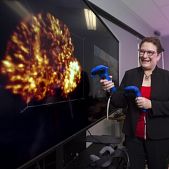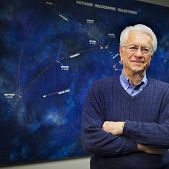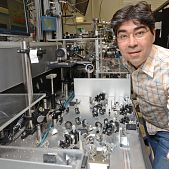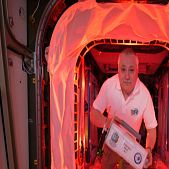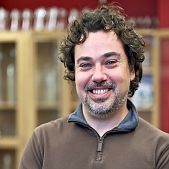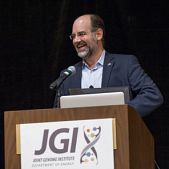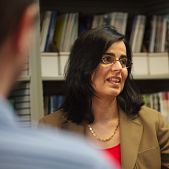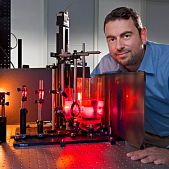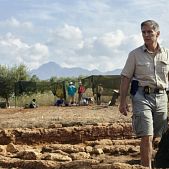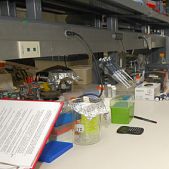
Greeks who changed the world in 2017
For yet another year Greeks from all over the world, managed to excel, to abolish the borders and make us proud with their achievements. The ellines.com team chose 12 of them, one for each month of 2017, who caused international sensation with their work and personality.
January – Yana Zavros

Scientists looking to understand human stomach diseases can now use an artificially grown tissue designed to recreate the normal processes of the organ such as producing acids and other digestive enzymes. In a study featured in the journal Nature, researchers from the Cincinnati Children’s Hospital Medical Center, among them the Greek researcher, were able to grow human tissues in a laboratory using samples taken from the corpus/fundus region of the stomach. Read more…
February – Michael Cosmopoulos

European Academy of Sciences and Arts inducts Michael Cosmopoulos at a ceremony held at the University of Salzburg. The induction puts Cosmopoulos, the Hellenic Government-Karakas Foundation Endowed Professor in Greek Studies, among the ranks of top scholars and scientists including 33 Nobel Prize winners and one pope, Benedict XVI. Read more…
March – Vasilis Ntziachristos

The visionary enterprise at Helmholtz Zentrum München is recruiting top international researchers from different disciplines to form an integrated operation taking on major disease challenges of our times. Under the leadership of Director of Biomedicine Prof. Dr. Matthias Tschöp and Director of Bioengineering Prof. Dr. Vasilis Ntziachristos, the first pioneer divisions will start as soon as 2017 to search for technological breakthroughs to advance medical research. Read more…
April – Lydia Kavraki

Rice University computer scientist Lydia Kavraki has received one of the most prestigious honors in her field, the Association for Computing Machinery’s (ACM) Athena Lecturer Award. Read more…
May – Vicky Kalogera

Vicky Kalogera, a Northwestern University astrophysicist who played a key role in the historic discovery of gravitational waves — confirming a major prediction of Einstein’s theory of relativity and launching a new field in astronomy — has been named the 16th recipient of the Martin E. and Gertrude G. Walder Award for Research Excellence. Read more…
June – Nikos Kyrpides

The number of microbes in a handful of soil exceeds the number of stars in the Milky Way galaxy, but researchers know less about what’s on Earth because they have only recently had the tools to deeply explore what is just underfoot. Now scientists at the U.S. Department of Energy Joint Genome Institute (DOE JGI), a DOE Office of Science User Facility, led by the Greek researcher, have taken a decisive step forward in uncovering the planet’s microbial diversity. Read more…
July – Nicholas Katsanis

The American Society of Human Genetics (ASHG) has named Nicholas Katsanis, PhD, Director of the Center for Human Disease Modeling, Professor of Cell Biology, and Brumley Distinguished Professor of Pediatrics at Duke University, as the 2017 recipient of the Curt Stern Award. Read more…
August – Fyodor Yurchikhin

Fyodor Yurchikhin and Sergey Ryazanskiy ‘walked’ out of the ISS to launch five small satellites and undergo general maintenance of the station. One of the small satellites – called Tomsk-TPU 120 – is the first to have a fully 3D printed body. The two spacewalkers exited the Pirs Docking Compartment Station at 10:36 a.m. EDT. Among their accomplishments was manual deployment of five nanosatellites from a ladder outside the airlock. Read more…
September – Eleftherios Goulielmakis

A team of scientists led by Dr. Eleftherios Goulielmakis, head of the research group “Attoelectronics” at the Max Planck Institute of Quantum Optics, have been able to capture the dynamics of core-excitons in solids in real-time. Read more…
October – Tom Krimigis

The International Academy of Astronautics (IAA) has presented its premier honor — the von Karman Award — to Tom Krimigis, eminent space scientist and head emeritus of the Johns Hopkins University Applied Physics Laboratory (APL) in Laurel, Maryland. Named for aerodynamics pioneer Theodore von Karman, founder and first president of the IAA, the annual award recognizes outstanding lifetime scientific achievement. Read more about Stamatis Krimigis
November – Konstantinos Tzelepis

A study has found an unexpected new drug target for acute myeloid leukaemia (AML) that could open new avenues to develop effective treatments against this potentially lethal disease. Dr Konstantinos Tzelepis, one of the first authors on the study from the Wellcome Trust Sanger Institute, said: “This study uncovered an entirely new mechanism of gene regulation in AML that operates through modifications of RNA”. Read more…
December – Maria Kavallaris
The Greek researcher behind virtual reality breakthrough that allows to ‘walk’ through cancer cells. UNSW researchers are revolutionising medical research by creating virtual reality technology that allows scientists to walk around the landscape of human cells. Ground-breaking virtual reality technology is allowing multiple scientists to see inside a human cell at the same time, giving researchers a three-dimensional tool to improve doctor interaction and help analyse how cancer drugs work. Read more…









